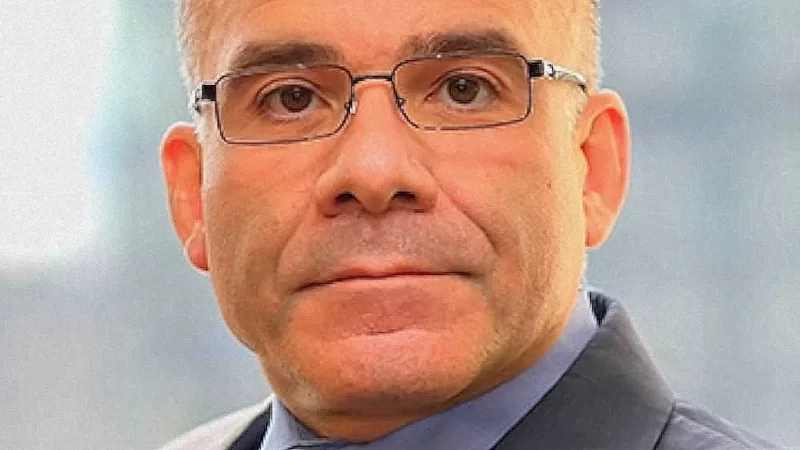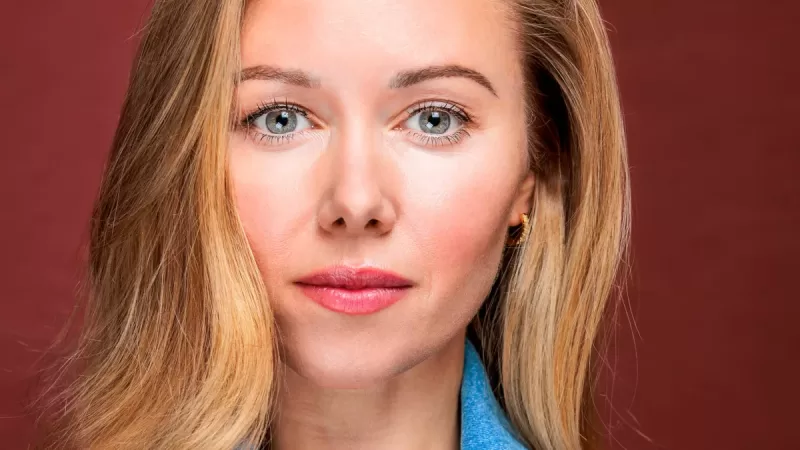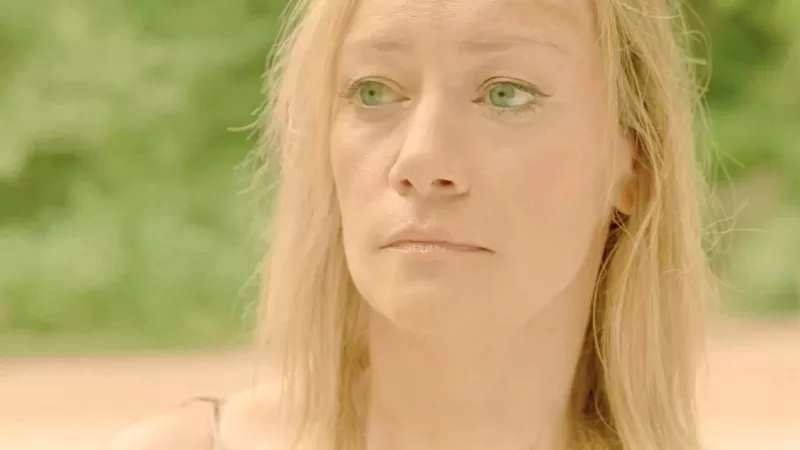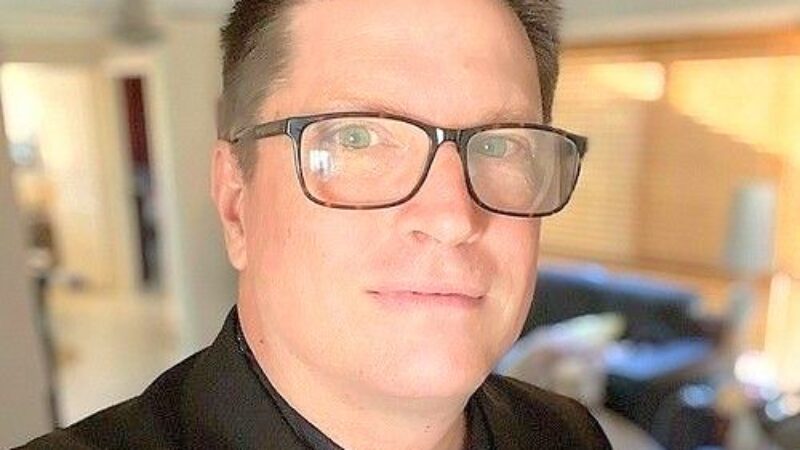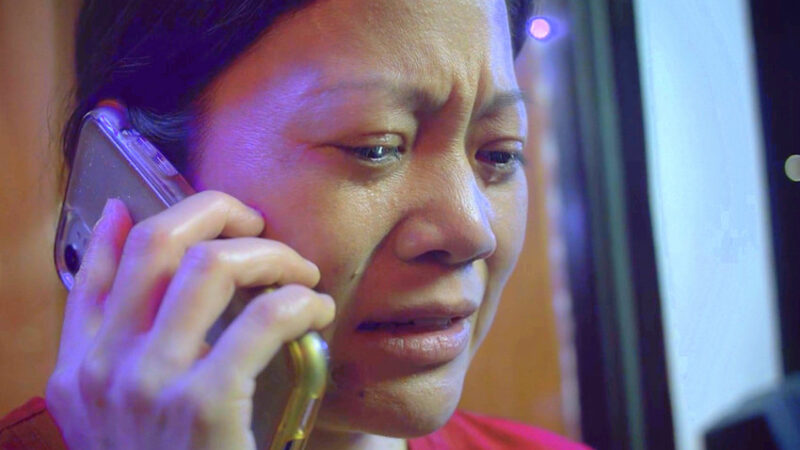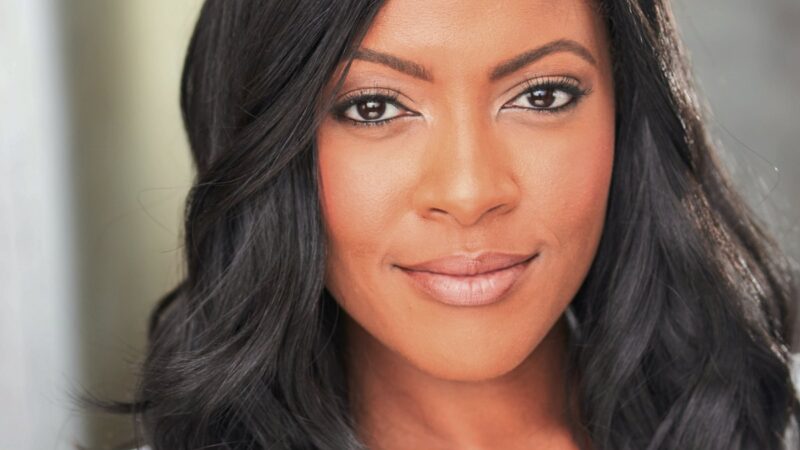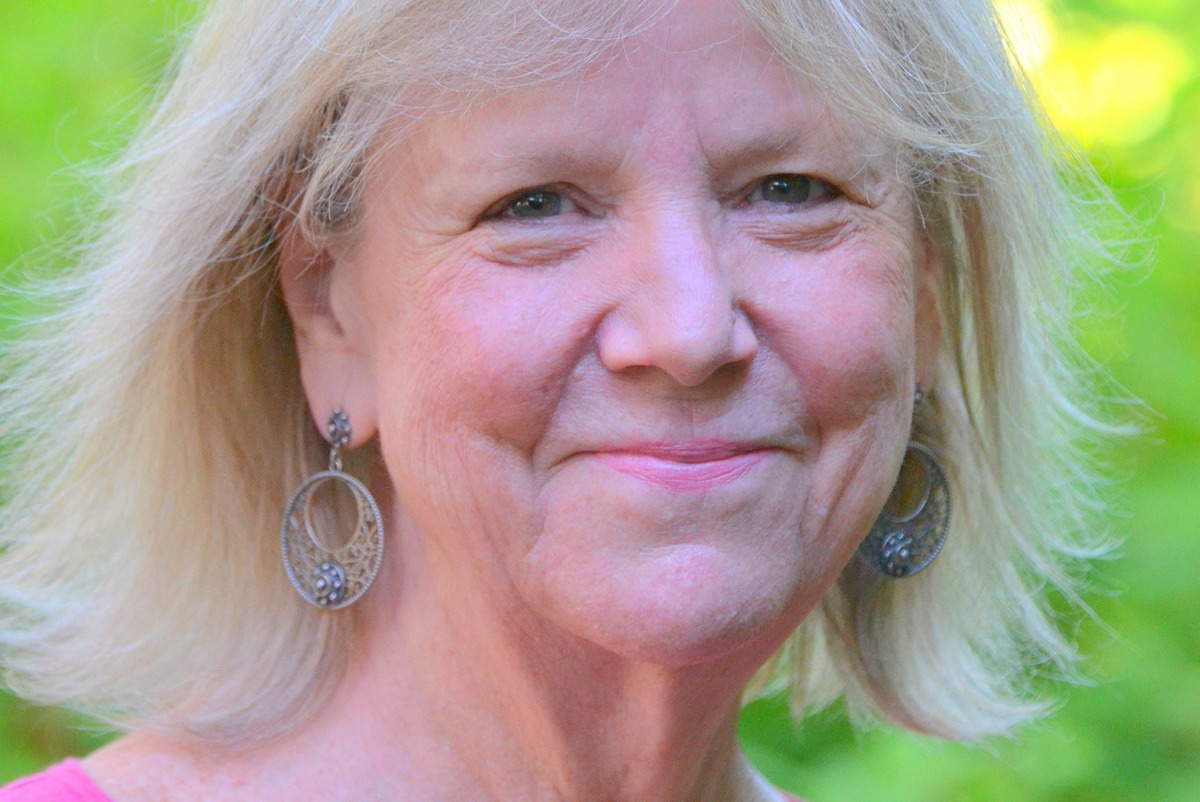
Jan Haaken is a Professor Emeritus of Psychology, Clinical Psychologist, and documentary filmmaker. Her documentaries grew out of decades of field studies. Field studies carried out in various conflict zones, from refugee camps, war zones, psychiatric hospitals, dairy farms to abortion clinics.
“My films enlist many of the same participatory and social action research methods developed through my field studies. As a psychologist, I think of my documentaries as ways of holding an emotionally or politically charged topic. And of helping audiences hold disturbing or provocative material–through this medium” says Jan Haaken.
indieactivity: How would you describe your work as a director?
Jan Haaken (JH): I think of my films as forms of cultural memory. Ways of gathering up stories, and events that may only fleetingly appear on the media stage. And to gather them up to respond in more thoughtful ways to a social problem. I’m also interested in the sensuous, and quotidian aspects of jobs that may not be recognized. Or appreciated as skilled work.
NECESSITY: Oil, Water & Climate Resistance Trailer
From refugees crossing borders, drag queens and hip-hop artists performing to cross-over audiences. Therapists treating soldiers in war zones, and abortion providers crossing protest lines. To my new series on climate resistance, my films focus on work carried out in difficult places. And the human challenges that arise. These projects also require attunement to what is sometimes called the “politics of representation”. Or portrayals of people that have been marginalized or stereotyped through the “white (or male) gaze.”
In my projects, I try to avoid over-idealization of oppressed groups as well as negative images because romanticized images also rob people of complexity and their full humanity. I have also been influenced by traditions of Indigenous Knowledge that stress attachment to place—the importance of water protectors and land protectors as they express love of place and non-human aspects of the natural world, alongside pictures of the lethal forces and climate catastrophes unfolding before our eyes. Eros over Thanatos, as some would say.
How did you get into directing?
Jan Haaken (JH): As a professor and researcher, I directed field studies involving teams of people, primarily students, for several decades. I came to think of the medium of documentary film as an extension of the laboratory or the classroom. Like research studies, documentaries carry obligations to reflect the actual lived experiences portrayed. At the same time, both forms of inquiry involve creativity and subjective judgements. My background as a researcher sensitized me to ethical challenges in documentary filmmaking, issues heightened in projects that are carried out with people in vulnerable situations.
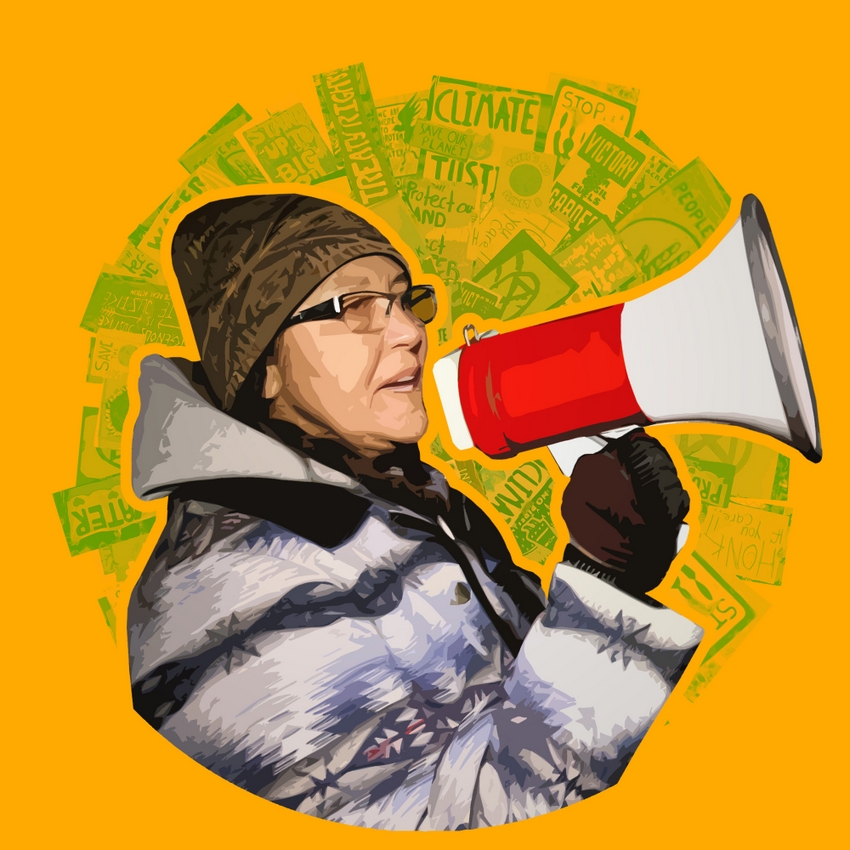
How do you choose a project to direct?
Jan Haaken (JH): My documentary projects, both features and shorts, are carried out in various sites of social conflict or crisis, whether refugee camps, war zones, drug bars, psychiatric asylums, abortion clinics or the front lines of climate resistance. Typically, the stories unfold around people on the social margins and places where I have been enlisted to capture a fuller picture of what’s happening than the pictures circulating in mainstream culture. Features are a longer commitment than shorts so I have to really care about the project and feel that I have something distinctive to contribute to public conversations on the issue.
What uniqueness can female directors bring to film/tv/cinema?
Jan Haaken (JH): Because of gender expectations and roles for women around caregiving, female directors are more apt to have developed skills in holding groups together and in reading emotional cues—necessary aspects of film production. These skills are not exclusive to women, of course, because men also need to attend to the affective and relational aspects of filmmaking. But these skills are more often part of the life experiences that female directors bring to their projects.
Do you often take courses to increase your craft?
Jan Haaken (JH): As a frequent visiting professor at universities, I am often part of seminars or workshops where filmmakers and scholars share their methods and discuss their work. I was a filmmaker in residence at the U of British Columbia in 2023, for example, where I taught a workshop on ethical dilemmas and documentary methods.
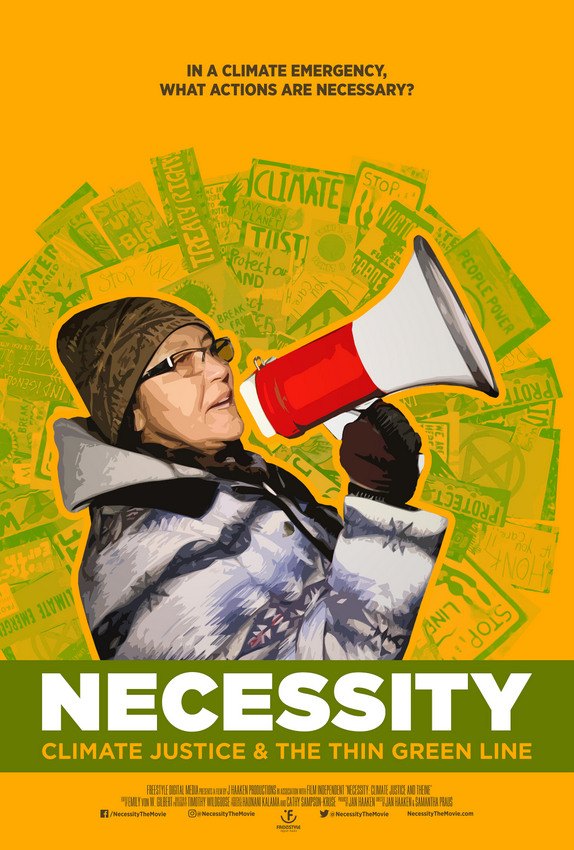
For many years, I taught a course at my university titled Gender, Psychoanalysis and Film. The course covered psychoanalytic film criticism, particularly the work of Laura Mulvey on visual pleasure, narrative cinema and the “male gaze.” We also took up work of psychoanalytic feminists such as Judith Butler on gender as performance—work that led me to my early documentary feature on drag performance, Queens of Heart: Community Therapists in Drag (2006).
What books do you read?
Jan Haaken (JH): I tend to immerse myself in novels and nonfiction related to my current documentary project. For NECESSITY, I have been reading Native authors, particularly women, e.g, Northwest author Margaret Craven and the works of Louise Erdrich (e.g., The Plague of Doves), as well as works that take up the climate crisis such as Kim Stanley Robinson’s Ministry for the Future. I have also been reading in the field of Indigenous Futurisms, guided by the works of Grace Dillon (e.g., Walking the Clouds).
Why would you choose an actor, writer, or producer? What do you look for?
JH: I don’t use actors or writers (except for grants) but I do seek producers who 1) hold a deep affinity with the values of my projects, and 2) have ideas and means for getting projects funded and distributed.
When you are offered a project, what things do you put in place to deliver a good job?
JH: A number of my short films have been commissioned by university research teams, although my features have been carried out independently. For the university clients, such as University of Michigan Department of OB/GYN and their research on abortion providers and stigma, the criteria included the film’s fidelity to the research findings (e.g., on how providers deal with anti-abortion stigma), and how the film widens and deepens public understandings of a controversial topic, in this case, understandings of abortion care.
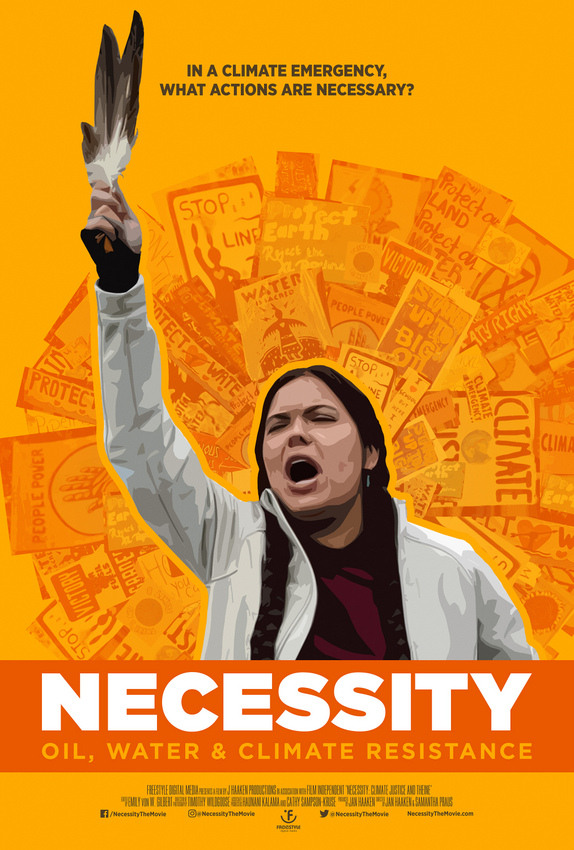
Briefly explain your latest work
JH: NECESSITY is a 2-part documentary film that tells a story of everyday people and their fight to save the planet. It’s a David and Goliath struggle against one of the most powerful industries in the world: companies involved in the transport of fossil fuels through a vast interlocking network of pipelines, ships, trains and terminals. As scientists call for dramatic reductions to avert a global catastrophe, oil companies ramp up production and transport.
The industry faces a formidable foe, however, as citizens in different regions of the country literally put their bodies on the line to stop the flow of oil. Each film follows activists’ use of the necessity defense in jury trials after committing acts of civil disobedience as a legal strategy to stop lethal industries. Necessity I: Oil, Water & Climate Resistance traces the fight in Minnesota against the expansion of pipelines carrying highly toxic tar sands oil through Native lands and essential waterways in North America.
The film follows indigenous leaders and white allies as they confront this expansion using direct action and civil disobedience to protect the sacred and demand justice. NECESSITY II: Climate Justice and the Thin Green Line continues the story of climate resistance with this regional focus on the Columbia River Gorge that brings into view a historical landscape of tribes resisting oil trains and trucks carrying toxic products through treaty lands.
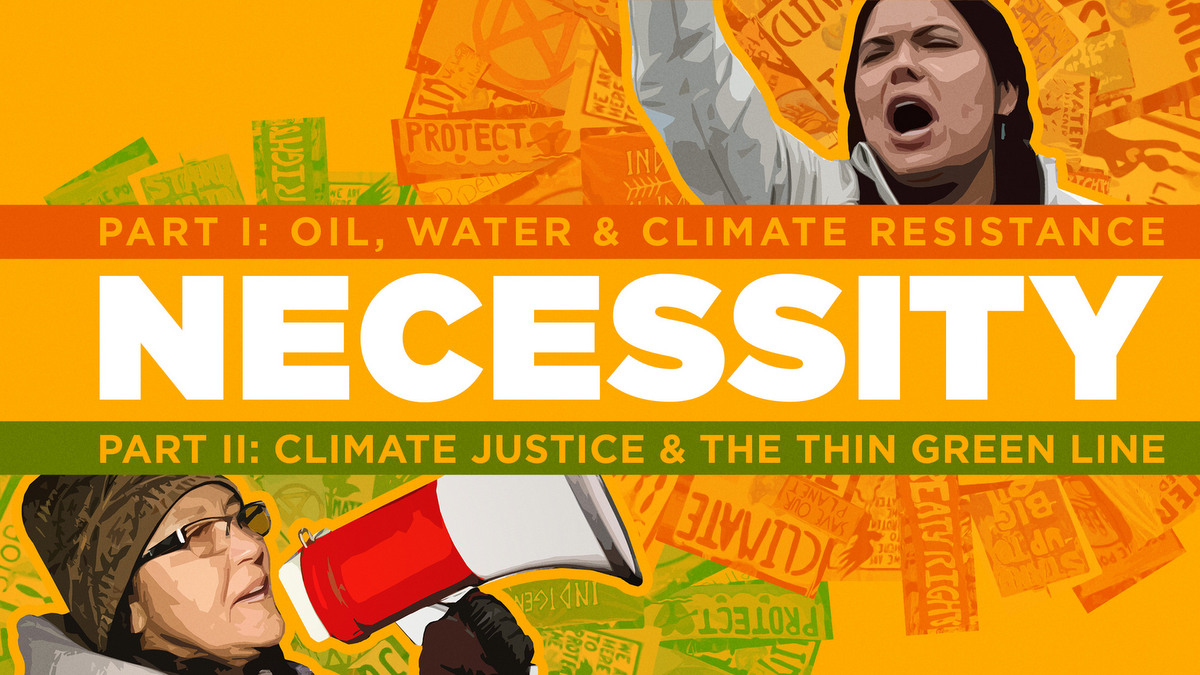
Explain key challenges on your last film?
JH: Most of the production of NECESSITY II was carried out during the pandemic, which brought practical challenges in carrying out the interviews—challenges we were able to address because of our deep community support. The team’s participatory method combined with the consultation process among Northwest tribes meant that tribal members serving as associate producers and advisors were key in pushing things along while also addressing issues that arose, for example, the filming of the “She Who Watches” pictograph on tribal lands. We were able to do this but it involved extensive consultations. Persistence, education oneself on tribal sovereignty issues and respect for tribal processes were key.
What ‘thing/situation’ helps you during production?
JH: Filmmaking, even small documentary projects, are expressions of group intelligence and creativity! For my projects, they also are exercises in group trust and ethical thinking. After each day of production, I meet with the crew to discuss feelings that arose and experiences related to the day’s shooting. With many of my films involving production in areas of legal risk, we also discuss the risks we are taking (or not taking) and how to be intentional and legally informed in our work as filmmakers.
Explain a creative choice you took on the set of a recent production?
JH: During the pandemic, we were highly restricted in where we could carry out interviews inside. After getting permission to film in an office building of a local environmental organization, we were able to create four spaces in the office that felt like distinctive settings for our interviews. Some interviewees brought their own artifacts to create the settings in a way that felt comfortable and organic to the project.
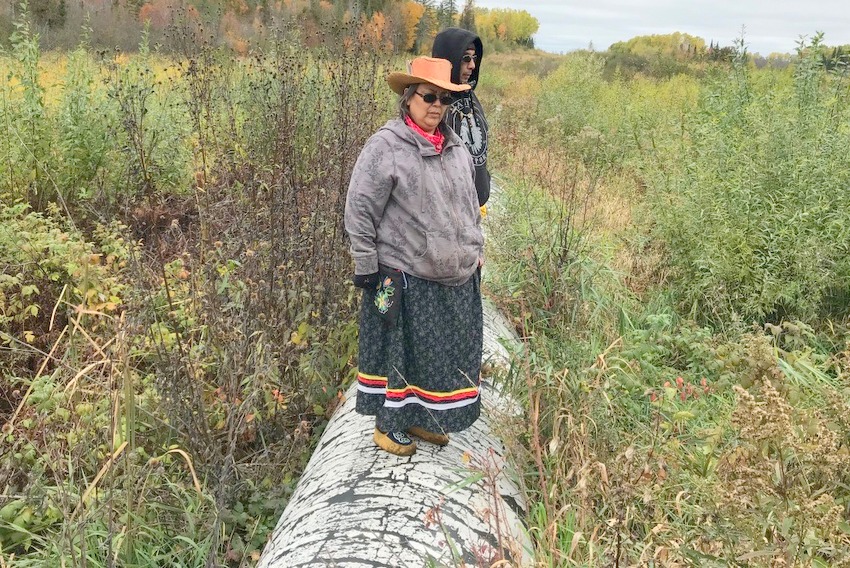
How do you advise directors to find projects?
JH: Like other art forms, films are part of cultural history and enter into historical conversations over moving images. It’s important to understand the historical embeddedness of a project and to think about how any new project either speaks to that history or opens up new ways of thinking and seeing. For documentary directors, there are additional demands around the fidelity of a film to actual events and those most affected by those events.
For non-Native filmmakers who are documenting events in the “sacrifice zones” of the climate crisis, there are additional obligations around how the pictures are produced and how tribal communities are represented and involved. While these dynamics can be inhibiting or seem exclusive for non-Native filmmakers, this is not necessarily the case. Working in these spaces has helped me to sharpen my thinking and develop my skills of observation as a documentary filmmaker.
How can filmmakers finance their projects?
JH: This is perhaps the most difficult part of independent filmmaking. I have extensive networks through my work as an academic as well as an activist and have depended on individuals who deeply care about the topic of the film, as well as grants, for funding.
How do you prefer to work with a producer during a production?
JH: Producers are important in holding the big picture of where the project is going and how It will be distributed. The associate producer role has been particularly important in my projects as a place for sustained participation of Indigenous leaders and filmmakers.
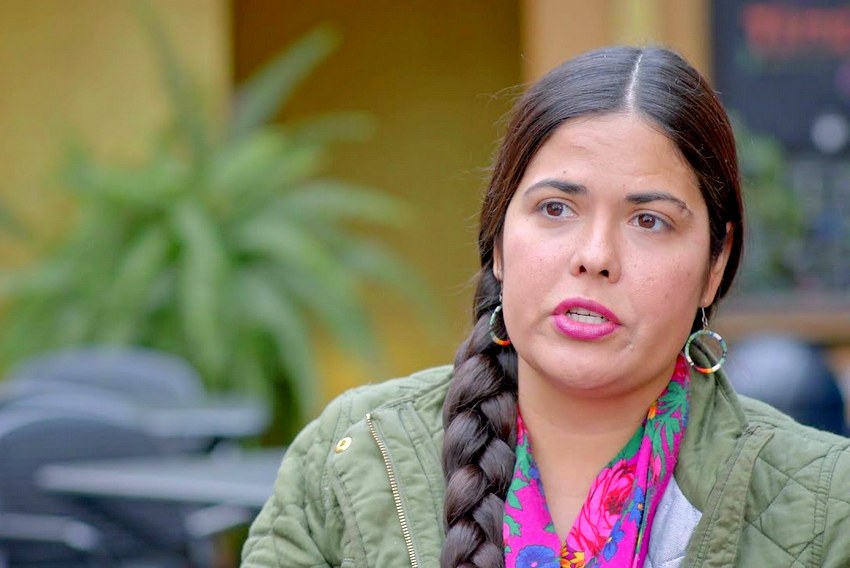
What do you think a female director can do to get into the film industry?
JH: Find places of female support, solidarity and mentoring. I am a member of Film Fatales, a national group of recognized female directors, and have found this group and my local chapter a source of group support and creative ideas.
Who is your favorite director?
JH: Probably Jane Campion.
Why?
JH: She has sustained a focus over her career on complex female protagonists and adapted an ethnographic style of narrative filmmaking that captures contexts and settings in interesting ways that are important in reading the characters. Her work has also generated lively discussion on what it means to be a feminist filmmaker. I think she does bring a self-conscious feminist lens to her films but others disagree. Not all of her films pass the Bechdel Test! (a film must meet three requirements: there must be (1) two named women in the film, who (2) have a conversation about (3) something other than a man.
What advice would you give male/female directors around the world?
JH: Think about why you care about this project and why you think anyone else should care. It’s not just about your personal passion. It’s about whether you are contributing anything worthwhile or in bringing something new to what cultural critic John Berger terms “ways of seeing.”
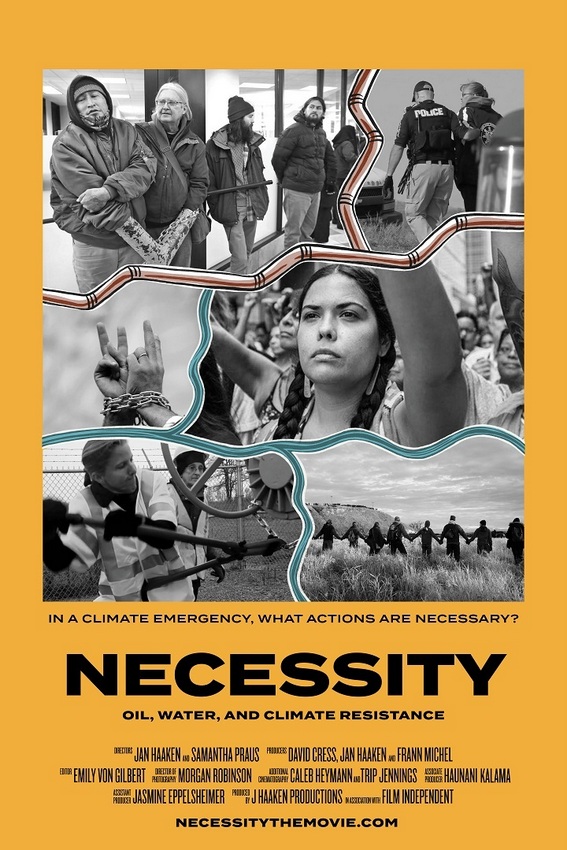
Briefly write about your career?
JH: From refugee camps, war zones, abortion clinics and mental hospitals to drag bars, dairy farms and hip-hop clubs, my documentary films focus on jobs carried out on the social margins and in liminal spaces.
I have directed nine feature films, including “Diamonds, Guns and Rice (2005),” Queens of Heart: Community Therapists in Drag (2006),” “Guilty Except for Insanity (2008),” “Mind Zone: Therapists Behind the Front Lines (2014)” “Milk Men: The Life and Times of Dairy Farmers (2016)” “Our Bodies Our Doctors” (2018), and “Necessity: Oil, Water, and Climate Resistance” and “Necessity: Climate Justice & the Thin Green Line” (2022).
My newest feature documentary, “Atomic Bamboozle: The False Promise of a Nuclear Renaissance” was completed in February 2023. I have been continuously inspired by the stories of people carrying out what Ivan Illich terms “shadow labor”—jobs typically carried out by women and people of color, work that is often invisible and most noticed when it isn’t being done.
Of the awards that I have received over the years, I’m most proud of the Lena Sharpe Persistence of Vision award at the 2019 Seattle International Film Festival.
Tell us what you think of the interview with Jan Haaken. What do you think of it? What ideas did you get? Do you have any suggestions? Or did it help you? Let’s have your comments below and/or on Facebook, Instagram, or Twitter.
Socials
Website
IMDb
Facebook
LinkedIn
Instagram
Twitter
Vimeo
FILMMAKER INTERVIEWS


